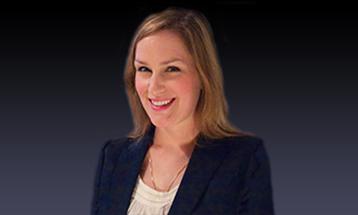Your experience was life-changing and that's ok
Life-changing doesn't always mean something bad. It can be what happens when you become part of something bigger than yourself; something that gives life new meaning, a mission, and a sense being 'in this together.” Experiences like this can change the way you view yourself and your feelings about how others see you.
The transition experience is different for every Canadian Armed Forces member, and every surviving member will eventually go through it. Being ok with your unique situation is your first step to a successful transition.
Life-changing doesn’t always mean something bad.
Your path is unique, but you are not alone
The experience of transitioning out of the military is different for everyone, no matter the length of service, rank, or reasons for releasing; a retiring combat arms Sergeant Major would have a different experience than a medically releasing Lieutenant. How you transitioned into the military, and whether or not you transitioned during service, will ultimately affect how you transition out.
Plan ahead and include your family
No matter at what stage you are in your military career, you need to know your options. Tapping into resources that we offer will help you along your way. Family is also an important resource. We encourage you to schedule a transition interview or sign up for a My VAC account as soon as possible to review the many avenues available. Including your family in your transition interview is always a good idea. That way you can continue to map out your best path forward together. Setting yourself up with a My VAC account will give you a source of up-to-date information on what services, benefits and resources are available for transitioning members of the CAF and Veterans. You can never start too early.
The Education and Training Benefit is one program that will help you improve your transition experience. This program differs from Career Transition Services because it is a 'quality-of-life' benefit. Through the Education and Training Benefit, you can learn and train for things that may not be career related, such as workshops and classes that will sharpen the skills you need to develop or improve on hobbies, develop skills needed to do volunteer work and community outreach, or brush up on old talents and pastimes.
If you are looking for a new career and have served six years or more in the CAF, the Education Training Benefit is one option. Others include scheduling professional career counseling or, for ill or injured Veterans and their families, there are also the Vocational Rehabilitation or Vocational Assistance programs. These programs help you build on the knowledge and experience you gained during your time in service so you can apply these skills to a new career.
...sharpen the skills you need to develop or improve on hobbies, develop skills needed to do volunteer work and community outreach, or brush up on old talents and pastimes.
Keep the camaraderie
There's no reason to leave your military community behind if you don't want to. By using the programs, services and networks offered by organizations like Veterans Affairs Canada, the Canadian Armed Forces, and third-party advocate groups such as Soldier On and the Royal Canadian Legion, you can stay connected. There are Veterans out there who want the same things you do. You can talk to someone who has been through a similar experience, get advice and keep the sense of camaraderie that you enjoyed during military life.
Continue to serve your country as a public servant
As a Veteran of Canadian Armed Forces (CAF), you bring exceptional abilities and expertise to the workplace. Along with your commitment to teamwork and your leadership skills, you can make a real difference while continuing to serve Canada. The Government of Canada offers priority hiring to Canadian Veterans, including statutory priority hiring for Veterans who’ve medically released due to a service-related illness or injury, and regulatory priority hiring for medically releasing Veterans who were injured outside of service. This is another way to be part of something bigger than yourself.
Serve your community
It is just as important to put yourself out there in your community as it is to maintain old connections. For some, transition can be a long process; you will continue to build on who you are with new experiences. Connect with your community when you transition, whether it's your home town or someplace new. Your family, neighbours, colleagues, and other community members are all important to helping you transition. Belonging is a key part of well-being, so do your best to make new connections. Dedicate yourself to your new identity. You have already distinguished yourself in the service of Canada. Treat your transition as an opportunity to keep up the good work by serving your community.
So, who are you when you leave the service?
Your service is a big part of who you have become. Your experiences in the military were life-changing, so it makes sense that your transition will bring even more change into your life. You are unique, but you are not alone.
In the end, you are still you after your service is done. You’ve just started a new mission.
Date published: 2018-10-10
Sources: Kevin Hazel - Constable, RCMP; Ernie Davies - Master Warrant Officer; Tom Heckbert - Petty Officer, 1st Class




